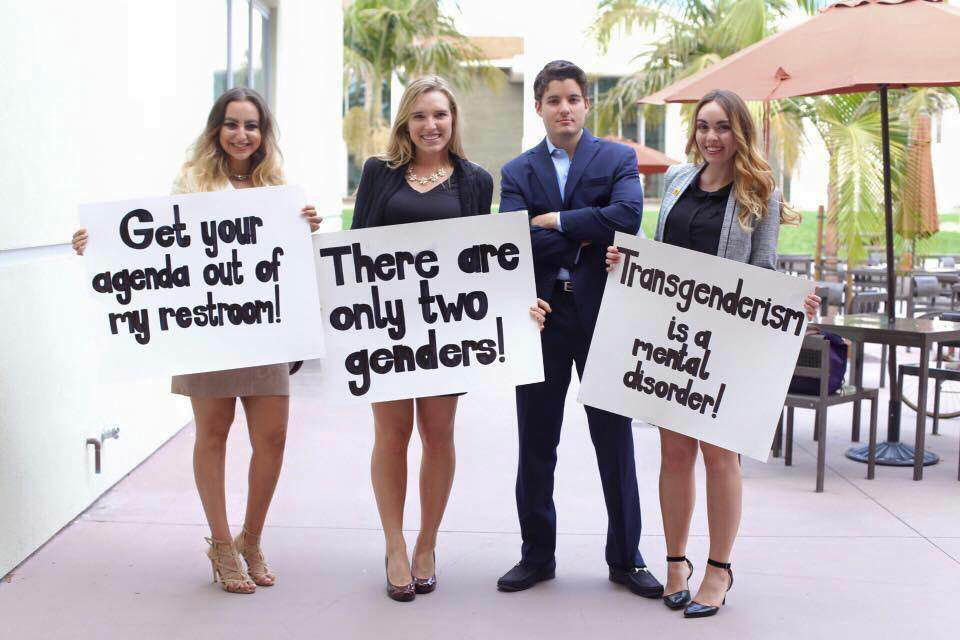
A controversial new regulation from the Florida Board of Education has ignited a heated debate within the state’s educational landscape, raising concerns about student autonomy, parental rights, and LGBTQ inclusivity. The rule, introduced ahead of the new school year, mandates parental consent for students who wish to go by a name other than their legal one, a decision that has caused ripples of frustration and discontent among students, parents, and educators alike.
Sam or Samantha
Samantha Kervin, a ninth-grade student hailing from Brevard, had always embraced her identity as “Samantha” or “Sam,” with little thought to the name she used among her peers and in class. However, this year’s unexpected shift in policy, emanating from the Florida Board of Education, has thrown a wrench into what used to be an uncomplicated aspect of student life.
Reflecting on the new rule, Samantha expressed her dismay, stating, “It kind of just annoyed me that people wouldn’t be able to be called by what they want to be called because of a form. That seems counterintuitive.” Her sentiment resonates with many students who are now grappling with the bureaucratic hurdle of obtaining parental approval for their preferred names.
In Brevard County
Districts across Florida, including Brevard, Orange, Seminole, Sarasota, and Leon County, are presently in the process of disseminating the mandatory forms to parents as the academic year takes off. According to Russell Bruhn, spokesperson for Brevard Public Schools, “It should be available to parents beginning this week.” He further clarified that the form can be obtained from individual schools or downloaded from the district’s official website.
Origins of the Bill
The genesis of this rule change can be traced back to a July meeting of the Florida Board of Education. During this meeting, the board laid out guidelines for school districts in response to recent legislative changes. Among several rules affecting LGBTQ students, one requirement stood out: districts would now need parental consent before a student could be addressed by a name other than their legal one. Although there is no specific law mandating the use of legal names for students, proponents of the rule argue it safeguards parental rights.
Parental Involvement
At the meeting, Matthew Woodside, a Brevard teacher with 17 years of experience, lent his support to the amendment, explaining that it was necessary to address the increasing number of transgender students. Woodside stated, “Many students are attempting (to go by a different name) without the knowledge of their parents, and many schools are complicit in this scheme, keeping this information from these parents, undermining the God-given rights of the parents.”
While proponents claim the rule protects parental rights and fosters transparency, critics argue it infringes on student identity and individuality. Drew Kloes, a Brevard 12th-grader who is transgender, pointed out that while the rule might aim to protect certain groups, it inadvertently targets minorities, including transgender individuals. He emphasized, “I know so many people who wouldn’t be able to do that and ask their parents to sign that form.”
Complicated Issue
The controversy goes beyond the LGBTQ community; even those who simply use nicknames are required to comply with the rule, submitting forms to their respective districts. One exception is Leon County, where nicknames do not necessitate the completion of a form.
Samantha, who observed that her teachers discussed the form on the first day of class, believes the new rule’s ramifications are far-reaching. She commented, “For the people that created and accepted this, (they) aren’t thinking of the broader consequences of said actions.”
Why?
The reasoning behind the adoption of the rule remains somewhat opaque. While HB 1069 restricts the use of pronouns that do not correspond with a student’s sex assigned at birth, the law does not explicitly address the usage of preferred names. The amendment that prompted the change fails to cite a specific law as a justification, merely stating that it seeks to “strengthen the rights of parents and safeguard their child’s educational record to ensure the use of the child’s legal name in school.”
As the debate rages on, the Florida education landscape finds itself at a crossroads, with student identity, parental rights, and inclusivity hanging in the balance. How this new rule will ultimately shape the educational experience for students remains uncertain, and further discussions are likely to ensue as the school year progresses.
